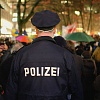G20 or G2?
In
Login if you are already registered
(no votes) |
(0 votes) |
Antalya’s G 20 (15-16 November) was supposed to show to the world the wonders of Erdoğan’s Turkey, but reality has been different. The events in Paris have pushed terrorism high on the agenda, and the instability of the world economy was of course the other key issue. In fact little in Antalya has been achieved. An agreement between the West and Russia in fighting terrorism has not yet been finalised; and on economic issues, the USA and China dominate and leave everyone else far behind.
Islamic State’s horrendous terrorism has its roots in the destabilisation caused by the Arab Spring and the Iraq War, as has also been admitted by Britain’s former Foreign Secretary, David Miliband (see http://www.ibtimes.co.uk/iraq-war-created-isis-concedes-david-miliband-1460557). Chaos in Iraq, Libya, and Syria, in addition to Egypt’s untimely experiment with elections has laid the ground for the monster. Western and regional powers (Turkey, Saudi Arabia, Qatar) have then propped up terrorism in the war against Assad and allegedly bought cheap oil under the counter from Iraq’s Northern region. This state of affairs has gone on for far too long. The West has never taken on ISIS responsibly: the USA is distant and still has its fingers burnt by the Iraq war, while a beleaguered EU has never found the resolve or the resources to intervene autonomously. Now it is late: European interventions only risk causing further attacks in the ‘old continent’.
Once ISIS is eliminated (which will not be easy, considering its ramifications in many countries, such as Libya, and its allies/competitors in Africa and Asia), a general conference on the Middle Eastern region will have to be organised. Some states, however, will have to give up on their ambitions to be regional hegemons and accept sharing power with the others. This is particularly true for Saudi Arabia and Turkey, which have played a role in destabilising the region and will have to accept dialogue with players such as Iran. Stability matters also because oil prices keep being very low – if the figure remains about 50$ per barrel, in five years Saudi Arabia and its neighbours will run out of cash, according to the IMF (see http://qz.com/533141/imf-saudi-arabia-is-in-danger-of-running-out-of-money-within-five-years/).
After all, the world economy is more and more becoming an affair of two Giants, the USA and China. The US economy keeps growing and in 2015’s second quarter recorded a strong 3.9% GDP rise. The Federal Reserve sticks to low interest rates, which benefit exports and thus limit China’s trade. At the moment America is waiting for a heated election campaign and has no intention to be involved in domestic or international disputes. If the economy is on track, Washington can look at the world more confidently. The Dollar’s use as a reserve currency has risen to 63.8%, and this despite of artificially low interest rates. Of course the future of the Dollar (and of the US economy) is linked to that of the Yuan, and its forthcoming international use.
The Yuan has become increasingly used in trade, and is gaining ground in many financial hubs around the world; London, where President Xi met the Queen (19 October), will be the next one and the leading in Europe. However, China’s Renmimbi, which might soon join the basket of IMF’s ‘hard’ currencies, will become truly powerful only after the full development of the Republic’s capital markets. It is worth remembering that on 9 November the leaders of Beijing and Taiwan met for the first time ever; the historic event took place in Singapore. Why in Singapore? Amongst other reasons, it is Southeast Asia’s financial capital and a symbol of integration between different cultures and political practices. In other words, it might well be the case that Mr Xi and Mr Ma are thinking about economic and financial integration across the strait; Taiwan’s Bourse is in the world top-20 and can contribute to the emergence of a Pacific Superbourse (which already includes Shanghai and Hong Kong) without which the Yuan could hardly ‘take off’ in currency markets. In political terms, Singapore’s meeting is then a show of strength on Beijing’s side, and bears witness to the resilience of an economy which, despite biased criticism, keeps growing at the annual pace of 6.5-7%.
The rest of the world economy looks rather squeezed between the two giants. This is particularly true for the EU countries and the entroubled Eurozone, which owes some recovery to Mr Draghi’s QE policy, but suffers tremendously because of its lack of unity and proximity to problematic regions such as North Africa and the Middle East. The Euro’s weakness is a boost to export, but also a sign of poor credibility, especially in the long term. In 2015’s third quarter, the Eurozone’s GDP grew by a modest 0.3%, and supposedly ‘virtuous’ countries such as the Netherlands and Finland did even worse (0.1% and – 0.6% respectively).
For its part, Russia is economically suffering, too, but has taken the lead in international affairs by fighting ISIS in Syria and Iraq, and is demonstrating that a clear foreign policy, with a strong sense of direction, is paying off; as this column had already made clear about a year ago (see /en/blogs/ernesto-gallo-giovanni-biava/?id_4=1508). Western countries, including the USA, are now searching for Russia in the fight against ISIS, after they has re-habilitated Russia’s reliable partner, Iran. Tehran (whose President had to cancel his visit to Paris) has the potential to join the G 20, but what would then happen to Saudi Arabia? To conclude where we started, world economy and security are intimately linked, and without political stability there can be neither global economy nor global society.
(no votes) |
(0 votes) |




